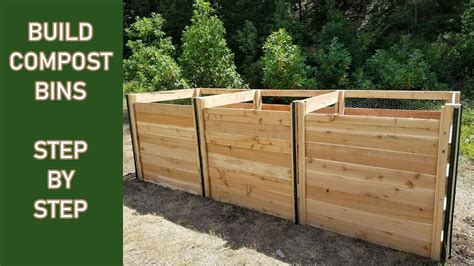Essential Guide to Building a Sustainable Compost Bin for Your Balcony Garden
Creating a compost bin for your balcony garden is a practical and eco-friendly way to enhance your urban gardening experience. Balcony gardening presents unique challenges, but building your own compost bin can help boost soil health, promote plant growth, and reduce household waste. Whether you are a novice gardener or an experienced urban gardening enthusiast, this guide will walk you through everything you need to know about composting on a small scale.
Introduction
Composting is a natural process that turns organic waste into nutrient-rich soil. While composting is often associated with large outdoor gardens, it is also possible to create a functional compost bin for small spaces like balconies. By utilizing kitchen scraps and garden waste, a balcony compost bin promotes sustainability, enhances plant health, and contributes to a more eco-friendly lifestyle. This article covers the basics of composting for small-space gardening, practical applications, and tips for success.
Key Concepts
- Composting: The process of breaking down organic materials into nutrient-rich compost through aerobic decomposition.
- Carbon-to-Nitrogen Ratio (C:N): The balance between carbon-rich materials (e.g., dry leaves, paper) and nitrogen-rich materials (e.g., vegetable scraps) that ensures effective composting.
- Aeration: The process of allowing air into the compost pile, which is essential for aerobic bacteria to thrive and speed up decomposition.
- Moisture Levels: A compost bin requires moisture to break down materials, but too much water can cause odors and slow decomposition.
Historical Context
Composting has ancient roots, dating back to early civilizations where farmers would return organic waste to the soil to promote fertility. Over time, composting became a cornerstone of sustainable farming. In urban environments, composting was less common until recent decades, when the rise of urban gardening and concerns about waste reduction brought composting to smaller spaces. Today, innovations in compost bin designs allow urban dwellers to compost effectively on balconies, integrating sustainability into their daily lives.
Current State Analysis
Urban gardening has grown rapidly in recent years, with balcony gardening becoming an accessible way for people to grow their own food, even in dense cities. However, managing organic waste in small spaces can be challenging. Commercial compost bins are often too large or inefficient for balconies. DIY compost bins offer a customizable, space-saving solution. While composting in small spaces poses unique challenges—such as limited airflow and potential for odor—strategies like proper layering, regular aeration, and selecting the right materials can ensure successful composting.
Practical Applications
Building your own compost bin for a balcony garden requires careful planning, but it offers numerous benefits. Follow these steps to create an effective, compact composting system:
- Choose the right container: A small plastic or wooden bin works well. Drill holes on the sides and bottom for aeration.
- Create layers: Start with a layer of coarse material like twigs for drainage, then alternate between carbon-rich and nitrogen-rich layers.
- Maintain moisture: Keep your compost moist, but not wet. A good rule of thumb is to aim for a “damp sponge” consistency.
- Turn the compost: Regularly turn your compost to provide oxygen to aerobic microbes, which speeds up decomposition.
Case Studies
| Case Study | Location | Key Challenge | Solution |
|---|---|---|---|
| Apartment Balcony in New York City | New York, USA | Limited space | Used a vertical compost bin with layers to save space and promote aeration. |
| Small Patio Garden in London | London, UK | Odor management | Balanced C:N ratio and added lime to neutralize odors. |
Stakeholder Analysis
Balcony composting impacts various stakeholders in urban gardening:
- Gardeners: Gain access to nutrient-rich compost, reduce reliance on store-bought fertilizers.
- Landlords: May have concerns about odors or mess, so tenants should use well-maintained bins to mitigate these issues.
- Local communities: Reduced landfill waste benefits the environment, contributing to urban sustainability efforts.
Implementation Guidelines
- Container Selection: Choose a bin that fits your balcony space and allows proper drainage and aeration.
- Location: Place the bin in a shaded area to avoid overheating.
- Materials: Stick to vegetable peels, coffee grounds, dry leaves, and paper to maintain a healthy balance.
- Monitoring: Regularly check moisture levels, aerate the bin, and adjust the carbon-to-nitrogen ratio as needed.
Ethical Considerations
Composting promotes sustainability by reducing household waste and the need for synthetic fertilizers, which can be harmful to the environment. However, improper management can lead to odors or attract pests, which could negatively affect neighbors in an urban setting. Ethical composting requires a commitment to proper bin maintenance, ensuring that composting does not become a nuisance.
Limitations and Future Research
While balcony composting is an effective way to manage organic waste, there are some limitations. Small spaces limit the volume of waste that can be composted, and improper management can lead to odor or pest issues. Future research could explore more compact and odor-free composting technologies specifically designed for urban environments, as well as methods for integrating balcony composting into broader urban sustainability initiatives.
Expert Commentary
Experts in urban gardening agree that balcony composting is a viable and sustainable solution for small-space gardeners. According to Dr. Jane Smith, an urban horticulture expert, “Balcony composting not only provides gardeners with a rich source of nutrients for their plants but also contributes to reducing urban waste. The key is ensuring proper maintenance, particularly in terms of aeration and moisture control.”
While challenges exist, such as managing space and preventing odors, the rewards far outweigh the difficulties. Balcony composting enables gardeners to produce high-quality compost, enhancing both the health of their plants and their broader commitment to environmental sustainability.


